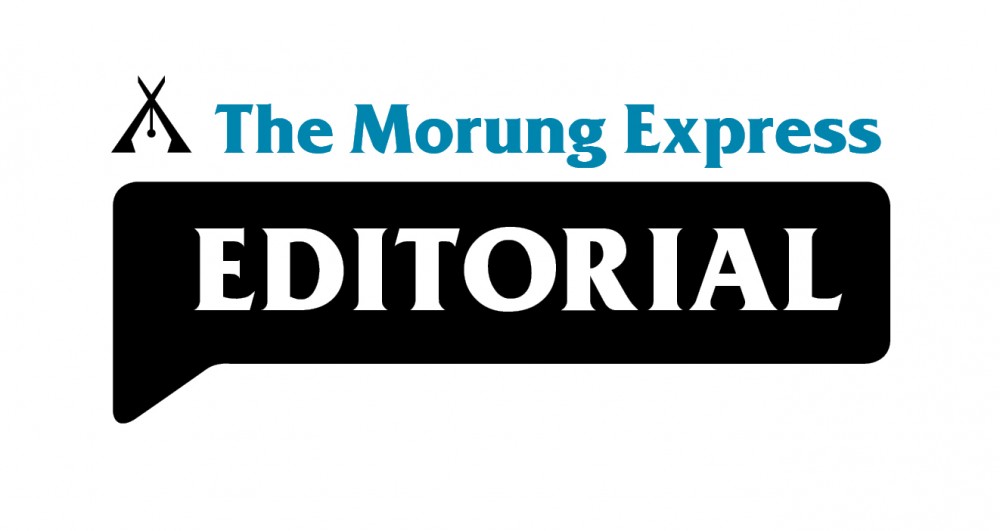
Moa Jamir
The provision of equitable, affordable and quality healthcare services to the people of the State is one of the Nagaland Sustainable Development Goal Vision 2030 targets. The role of the State Government is crucial in addressing the challenges of health services, and more importantly, the access to healthcare in the rural areas of Nagaland.
Against this backdrop, the ongoing tussle between the Nagaland In-Service Doctors’ Association (NIDA) and the State Government over the superannuation age of the government doctors is most regrettable. While the three-day ‘casual leave protest’ ending April 20 was to be followed by total ‘cease work’ agitation thereafter, the NIDA has informed on Wednesday that it has decided to withhold the same on April 21 pending a proposed State Cabinet meeting. We look forward to a positive resolution.
The NIDA’s demand is simple – increasing the superannuation age to 62 years for all medical doctors irrespective of clinical or administrative roles to maintain uniformity and smooth practical implementation. The Association asserted that its demand is based on Prime Minister Narendra Modi’s announcement in 2016 citing ‘acute shortages’ of medical doctors across the country. It backed its argument via a statement on April 1 that a total of 26 states/UTs since then have implemented the same, albeit variations from 62-65 years.
The Union Ministry of Health and Family Welfare (MoHFW) informed the Lok Sabha on March 9, 2018, that the Government has approved the enhancement of the age of superannuation of doctors other than Central Health Service (CHS) to 65 years via on Office Memorandum dated September 30, 2017. Again, on January 16, 2018, the Ministry of Personnel, Public Grievances and Pensions, Department of Personnel and Training also amended clause (bb) in rule 56 of the Fundamental Rules, 1922, enhancing the age of superannuation of the different cadres under the union of doctors to 65 years, it said.
On February 7, 2020, the MoHFW further informed in a written reply in Lok Sabha that as a measure to check the shortage of MBBS doctors in the country, “age limit has been enhanced for appointment/ extension/re-employment against posts of teachers/dean/principal/ director in medical colleges up to 70 years.” As per the 126th Parliamentary Standing Committee tabled in the Lok Sabha on March 8, 2021, the MoHFW also told the committee that the superannuation age for CHS and dental doctors has been enhanced to 65 years, while the appointment of contractual doctors in CGHS is permissible up to the age of 70 years.
Based on these precedences, NIDA’s demand seems highly justified and more importantly, an imperative given the reported vacancies of 182 doctors against 511 sanctioned in the State, and the perceived additional requirement with the creation of 5 new districts as well as two upcoming medical colleges.
If the State Government had given a “written assurance” on April 17, 2021, to resolve the issue within a "period not exceeding one year," was it sitting over the issue during the intervening period? Even on March 31, 2022, the State government issued a clarification via DIPR that the matter is under ‘active consideration’ and to be taken up by the Cabinet.
However, as the deadline approached, strangely, the State Government suddenly discovered some “boldness” in its approach by adopting a more confrontational stand and cautioning of disciplinary action as well as the adoption of the ‘no work no pay' policy. Perhaps, the Naga Students’ Federation (NSF) reaffirmation of its stance to maintain the “status quo” is an indicator.
Nevertheless, the case for increasing the superannuation age of medical doctors regardless of the PM’s pledge or acute shortages in the State can be justified by two other important arguments.
The dramatic improvement in human longevity, and more precisely healthy life expectancy, necessitate changes in how each labour force participates in the economy, and consequently, more working years. Sooner or later, every government has to confront this reality.
Moreover, the medical sector is a highly-skilled profession, which everyone cannot simply enter or exit at will. Hence the argument of restricting opportunities for others is untenable, while concerns over the creation of precedence should be viewed by contextualising the nature and aspirants for the particular profession.
For any comment on health related matters, drop a line to jamir.moa@gmail.com






